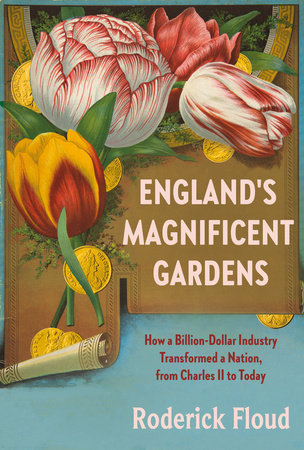- Shop
- >
- Adult Titles
- >
- Gardening and Plants
- >
- England's Magnificent Gardens: How a Billion-Dollar Industry Transformed a Nation, from Charles II to Today by Roderick Floud
England's Magnificent Gardens: How a Billion-Dollar Industry Transformed a Nation, from Charles II to Today by Roderick Floud
Hardcover
Adult
An altogether different kind of book on English gardens—the first of its kind—a look at the history of England’s magnificent gardens as a history of Britain itself, from the 17th-century gardens of Charles II to those of Prince Charles today; how gardens transformed England; what they cost in their time and the billion-dollar industry they created.
“One of the most important books on garden history in the last half century. For anyone serious about the subject, Floud’s book is a must buy.” --Historic Gardens
In this rich, revelatory history, one of Britain’s preeminent economic historians writes that while gardens have been created in Britain since Roman times, their true growth began in the 17th century. By the 18th century, nurseries in London occupied 100 acres filled with ten million plants and were worth more than all of the nurseries in France combined.
Roderick Floud takes us through more than three centuries of English history as he tells of the kings, queens, and princes whose garden obsession changed the landscape of England itself, from Stuart, Georgian, and Victorian England to today’s Windsors.
We meet the designers of royal estates, including Henry Wise, William Kent, Humphrey Repton, and England’s greatest of all gardeners, “Capability” Brown, who created the 150-acre lake near Blenheim Palace, who earned millions annually, and who designed more than 170 parks, many still in existence today.
We see how gardening became a major catalyst for innovation (central heating came from experiments to heat greenhouses with hot-water pipes); how industrial Britain’s new iron industry supplied a myriad of tools (mowers, pumps, and the boilers that heated the greenhouses); how gardens came to influence architecture (the Crystal Palace). And, finally, Floud explores how gardening became a billion-dollar industry as well as an art form that, by the 19th century, was unrivalled anywhere in the world.
